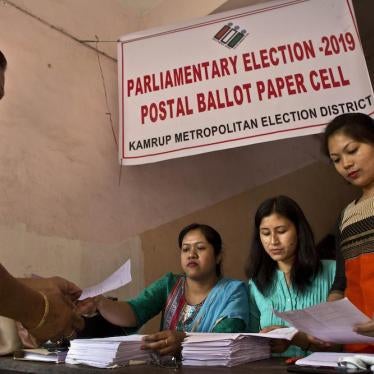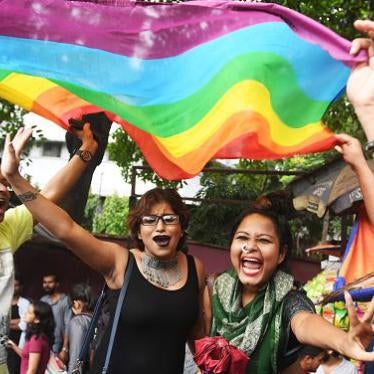A court in the Indian state of Tamil Nadu has ordered the local government to prohibit medically unnecessary “normalizing” surgeries on children born with intersex variations until the patients themselves can consent.
“Intersex” refers to the estimated 1.7% of the population born with bodily traits that do not fit conventional expectations of female or male. Their sex characteristics – such as chromosomes, gonads, or genitals – differ from social expectations. Except in very rare cases when the child cannot urinate or internal organs are exposed, these variations are medically benign, natural variations of human anatomy.
Yet in the 1960s surgeons in the United States popularized “normalizing” cosmetic operations, such as procedures to reduce the size of the clitoris. This approach has been effectively exported globally.
These procedures are not designed to treat a medical problem and there is no evidence that such operations help children “fit in” or “function in society,” which some surgeons say is their aim. The operations do, however, carry high risks of scarring, loss of sexual sensation, incontinence, sterilization, and psychological trauma
For decades, intersex patients and their advocates have asked governments and the medical community to develop standards to defer elective procedures until patients can decide for themselves – exactly what Justice GR Swaminathan delivered in his judgment on April 22.
The judgment cites India’s landmark 2014 Supreme Court decision upholding the rights of transgender and gender-diverse people. It also refers to Malta’s 2015 gender identity and sex characteristics law, which enshrined rights-based legal recognition for transgender people and banned unnecessary surgery on intersex children, the World Health Organization, which has urged an end to these operations, and the Indian intersex advocate Gopi Shankar.
Shankar wrote to India’s National Human Rights Commission and received a response from the Ministry of Health in 2017, which the judgment cites in full.
The ministry’s response features a subtle but important obfuscation. Officials deny Shankar’s claim that non-consensual medically unnecessary surgeries are being carried out, claiming that “any kind of invasive medical procedure, including sex reassignment surgeries, are done only after thorough assessment of the patient,” and “only after taking a written consent of the patient/guardian.”
But as I documented in my research for Human Rights Watch on the issue in the US, parents sometimes give their consent based on only limited or biased information from doctors. And a parent’s consent to medically unnecessary major surgery on a child too young to speak is hardly sufficient for protecting children from the risks of these surgeries. Scholarly research on the issue has found, similarly, that medical teams often coerce consent from parents by presenting “normalizing” surgeries as the preferred option, or using scare tactics such as suicide fears based on irrelevant data.
In recent years, national, regional, and international health and human rights bodies have increasingly called for the protection of intersex children’s informed consent rights. “The consent of the parent cannot be considered as the consent of the child,” Justice Swaminathan’s ruling stated plainly.
In recent years, national, regional, and international health and human rights bodies have increasingly called for the protection of intersex children’s informed consent rights. In 2015, 12 United Nations agencies released a joint statement referencing “unnecessary surgery and treatment on intersex children without their consent.” In 2017 the Parliamentary Assembly of the Council of Europe passed a resolution calling for protecting intersex children from unnecessary and irreversible surgery without their consent, and in 2019 the European Parliament complemented that call with its own resolution.
Physicians for Human Rights, Amnesty International, and intersex-led organizations worldwide have called for legal protections to ensure that such surgery is conducted only when the patients themselves consent. UN human rights committees, which oversee international treaties, have condemned the practice of non-consensual “normalizing” operations on intersex children 40 times since 2011.
Justice Swaminathan’s words will ring true for intersex activists, patient advocate physicians, and parents around the world who have shown through their own experience that peer support and honest conversations are the best form of care. And as he said, “The parents must be encouraged to feel that the birth of an intersex child is not a matter of embarrassment or shame.”
The Health and Family Welfare Department of Tamil Nadu has eight weeks to respond with its policy protecting the informed consent rights of children born with intersex traits. They would do right to consult with intersex advocacy groups and follow international human rights standards in crafting their policy and set an example the rest of India should follow. Everyone has the right to informed consent – even those who were born with bodies that are slightly different.









